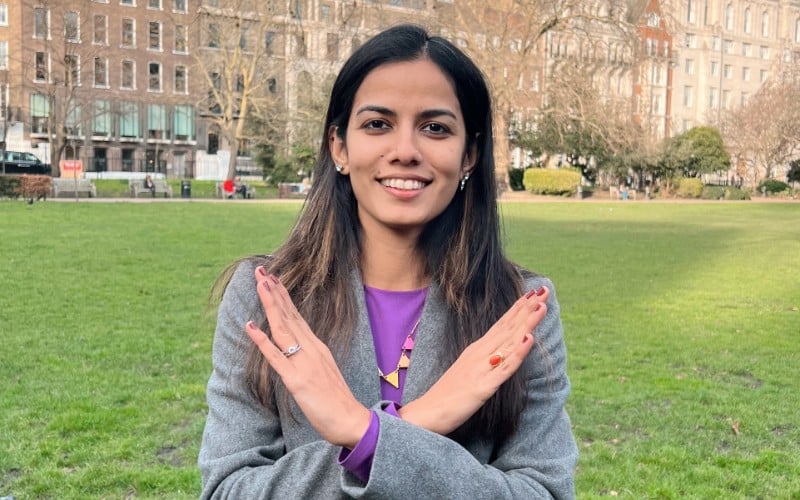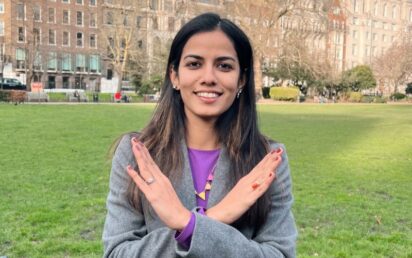FinTech has a reputation as a male-dominated industry.
It is commonly accepted that having a diverse workforce impacts the inclusivity of the tech platforms being built. Given the importance of financial tools in wellbeing, it is crucial that FinTechs embrace the challenge.
“Financial services are considered boring and functional in their essence – but the reality is that no matter where you live in the world, you have to deal with financial systems to live your life,” Shruti Rai, chief growth officer and co-founder of Novus, tells TechBlast.
“Your financial wellbeing is almost directly related to your mental wellbeing. That’s what makes me continue to stay in the FinTech industry, because the impact potential is just huge.
“Women are killing it whenever they are given the opportunity. My advice to any woman would be to not listen to anyone around them who tells them that life will be difficult in a male-dominated industry: we are in the social media world now where it is a lot easier to speak up and find support on issues of gender discrimination.
“There are also a lot of men now showing support, so you will find your place. Personally, I am 100% focused on having a 50/50 male/female ratio in our company.”
Rai, speaking ahead of International Women’s Day on Tuesday, says there are positive signs.
“There are several trends emerging, such as growing VC interest in female-led startups and products built for females, that should see improvements in the number of startups that are currently female-founded,” she says.
“I am a strong proponent of coaching and mentoring because I learnt a lot that way. The confidence of quitting a stable job and taking a pay cut with a child and mortgage to pay wouldn’t have been possible without a strong mentor network.
“I have personally been lucky enough to have great male mentors. Fintech is very male-skewed, especially in the non-marketing functions like product, business development, executive leadership levels and so on. I had to learn early in my career that I would need to change some of my behaviour to succeed in a male dominated environment – like speaking up, not letting ‘mansplaining’ happen, asking for more work, pay raises.
“I was able to do that, but I did see some of my other female counterparts in the FinTech world struggle with their male counterparts. Now I have a young daughter and I hope that by the time she is ready to go out and face the world, there will be enough gender diversity in all sections of the economy, so she doesn’t have to change her behaviour just to fit in.
“At Novus we are looking forward to utilising programmes like the Kickstarter scheme to give young grads – especially females – the opportunity to kickstart their FinTech startup journey.”
Rai was inspired to set up B Corp-certified challenger bank Novus with Hris Nedyalkov after witnessing the impact of financial apps on individuals and families while working at FinTech startup Remitly.
London-based Novus’s goal is to create an ecosystem that connects consumers’ spending habits to purpose-driven brands and impact projects. Every time a user taps their Novus card, real-time ‘impact’ points are donated to various environmental and social causes such as funding meals and cleaning the ocean.
Members can then follow their impact to see just how much of a difference they are making, as well as track and offset their carbon footprint based on their card activity.
Available for free on iOS and Android, the app – which raised more than £2.2 million in a crowdfunding round last year – is now actively onboarding users across the UK.
“I am driven and energised by the people around me and seeing the enthusiasm of the team to use payments as an actual force for good in this world made me quit everything and get on board with Novus,” Rai explains.
“American Express reward their customers with points to buy more stuff – but in the case of Novus, the rewards help you give back in the form of impact points that fund meals, education for those in need, to plant trees, contribute to ocean cleaning and so much more. We work closely with NGOs in each of these categories and share as much information as possible with our user base.”
Rai, who was born and raised in India, says it is also important for people to take individual steps to protect the planet.
“I come from a country where electricity and water are not a 24/7 commodity. So I follow what I was taught growing up: that we need to minimise the usage of energy and reduce demand.
“Switch off the lights and appliances that don’t need to be on constantly; turn off the tap when you don’t need it running; re-use jars to reduce plastic waste; and use solar energy for outdoor lighting.
“Simple things… but if we all did this, it would make a difference.”


